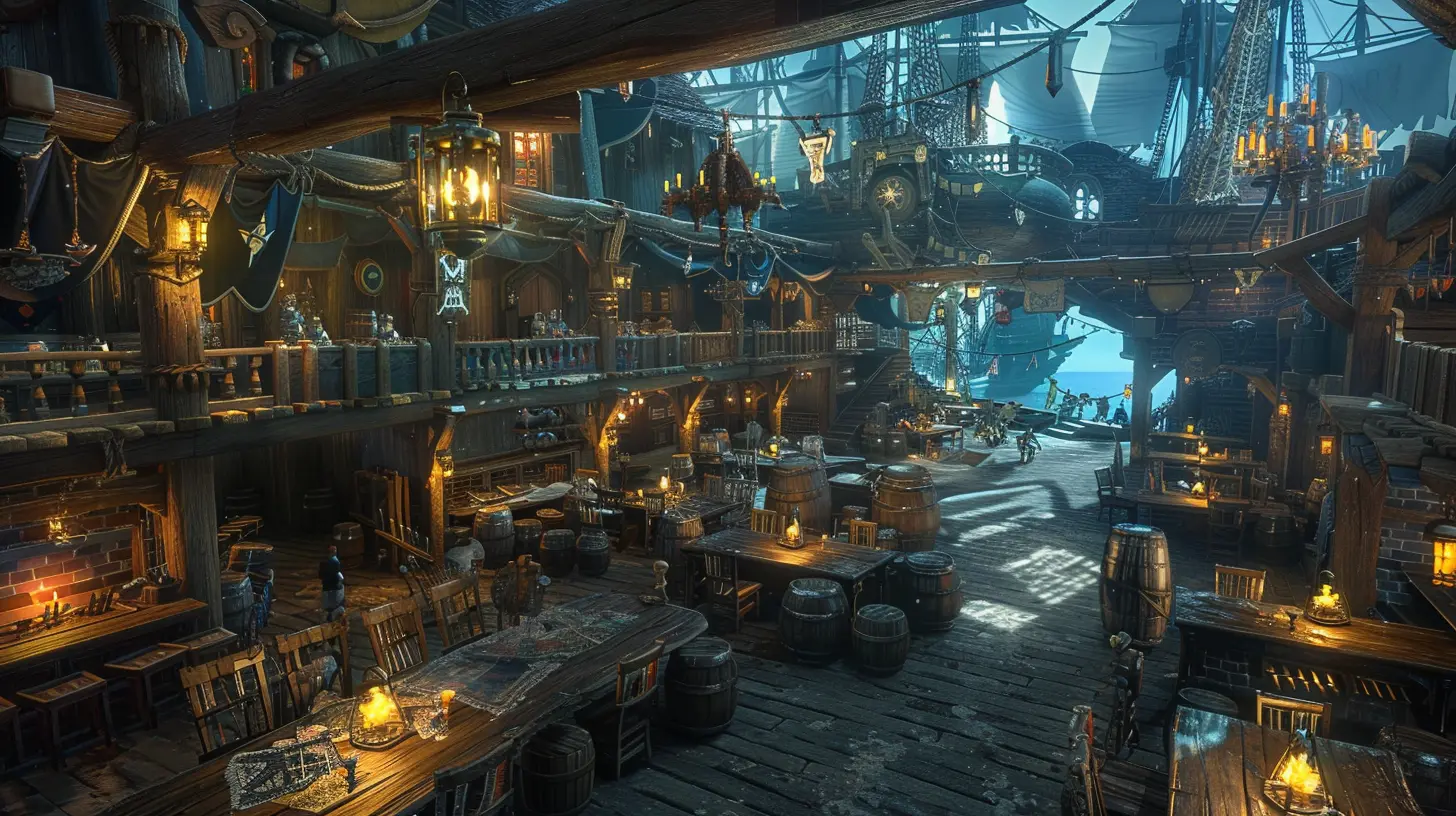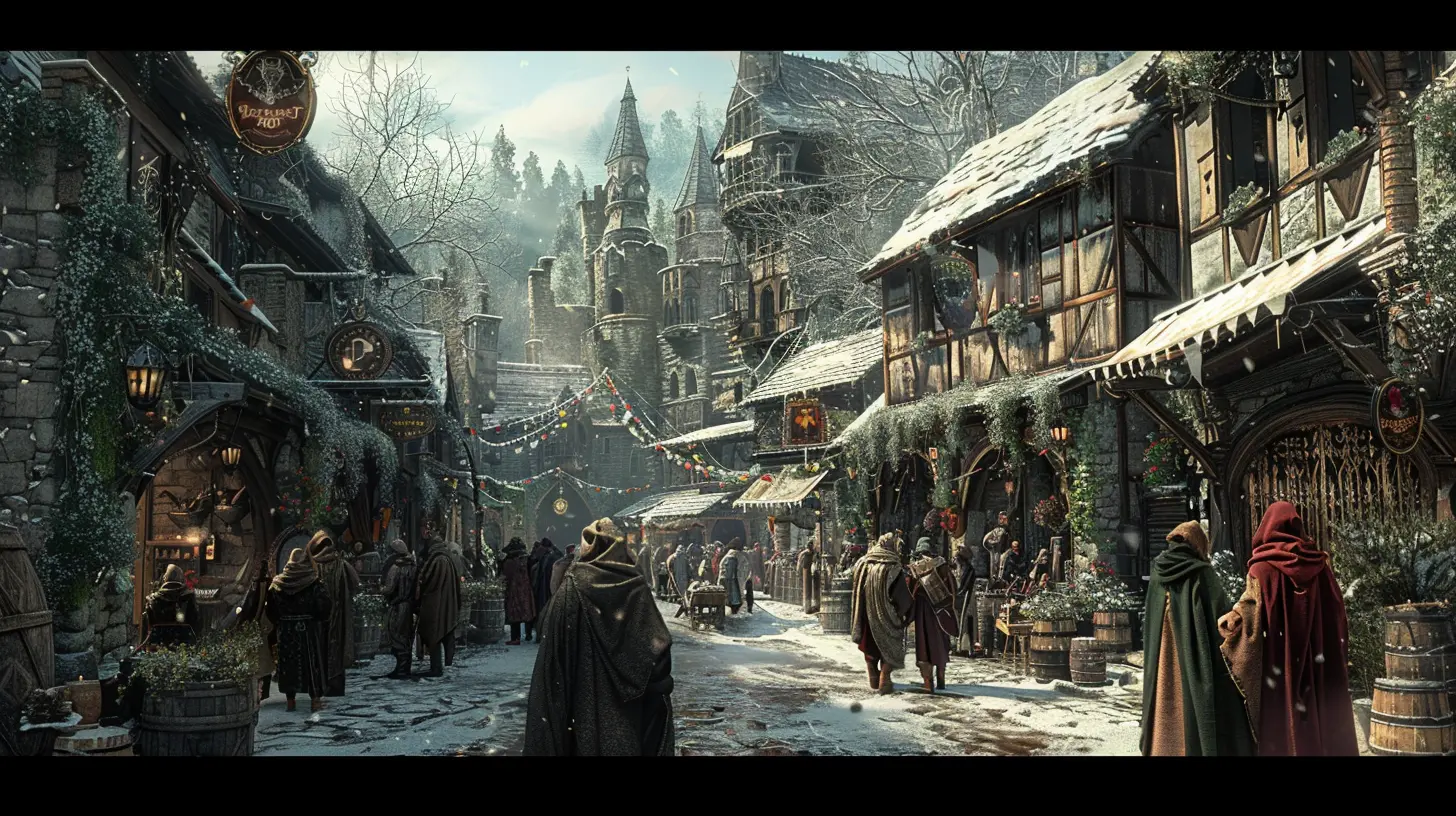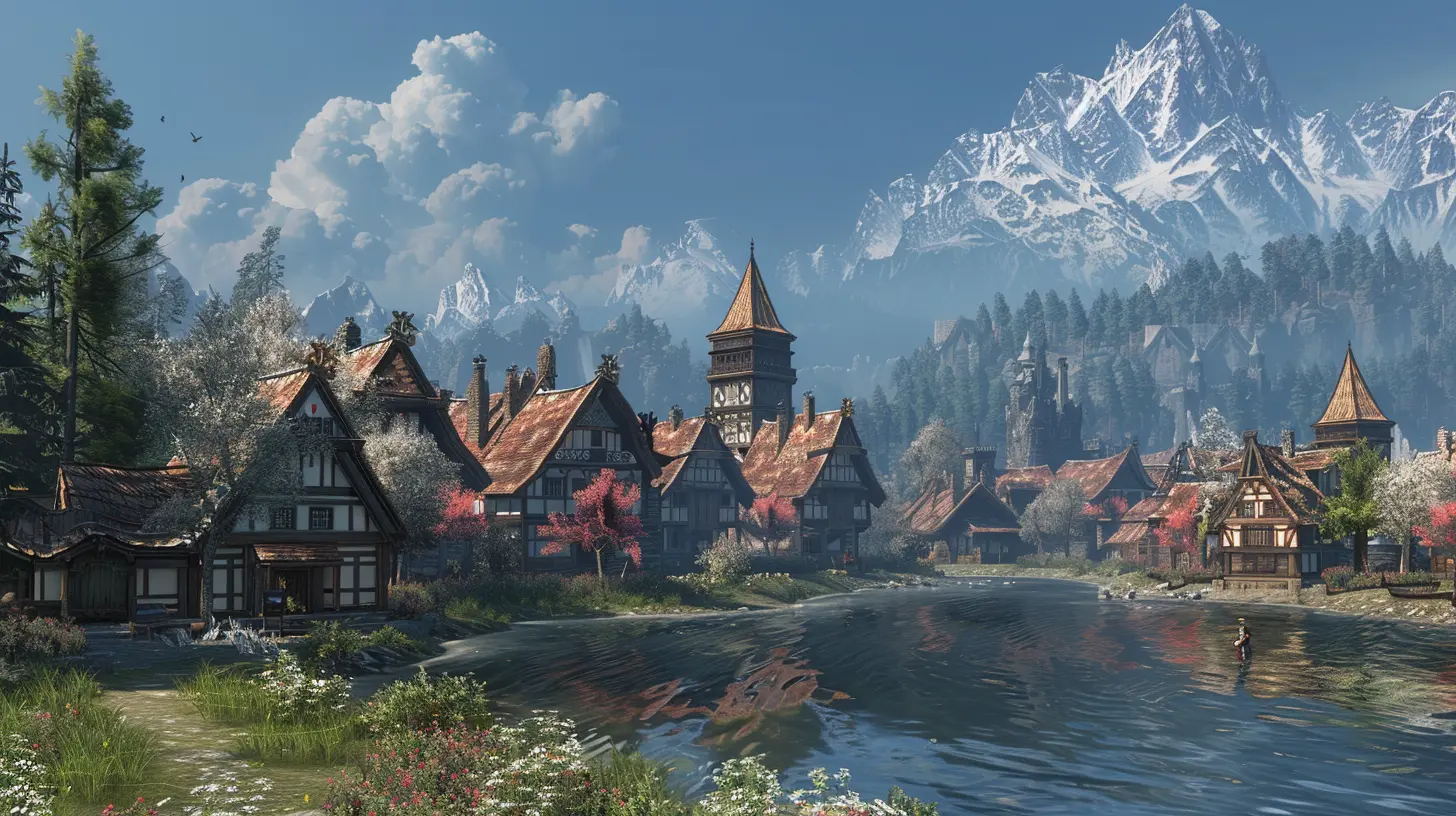Player-Driven Economies: How Auction Houses Shape MMO Markets
13 July 2025
If you’ve ever dipped your toes into the bustling world of Massively Multiplayer Online (MMO) games, chances are you’ve encountered their economies. You know, those chaotic, player-driven marketplaces where rare swords, shiny armor, and stacks of crafting materials are bought and sold. At the heart of these thriving virtual economies lies the auction house — a place where players barter, undercut each other, and turn their hard-earned loot into digital gold. But have you ever stopped to wonder just how much these auction houses impact MMO markets? Spoiler alert: they’re a huge deal.
Let’s unpack this fascinating topic and dive deep into the mechanics, influence, and quirks of MMO auction houses. Buckle up — it’s going to be a rollercoaster.
What Exactly Is a Player-Driven Economy?
Before we geek out over auction houses, let’s set the stage. A player-driven economy is exactly what it sounds like — an economy controlled and influenced by players, not NPCs (Non-Player Characters). Unlike static shops where the in-game currency has fixed prices for items, in a player-driven economy, prices fluctuate based on supply, demand, and even speculation.Think of it as a mini version of the real-world stock market. When someone floods the market with rare herbs, the prices tank. When a new crafting recipe skyrockets the demand for ore, miners suddenly become rich overnight. Basically, it’s capitalism with swords and magic.
The Role of Auction Houses in Player-Driven Economies
Auction houses act as the beating heart of player-driven economies in MMOs. They’re essentially digital marketplaces where players can list their items for sale, set prices, and wait for someone to snag them up. Sounds simple enough, right? But these auction houses do way more than just facilitate trades.1. Streamlining Trade
Before auction houses, MMOs relied on trade chat spam or player-run shops, which, let’s be honest, were a nightmare. Imagine standing in a crowded market zone for hours, typing, “WTS [Epic Sword of Awesomeness] 500 gold,” over and over. Exhausting, right?Auction houses fixed this mess by providing a centralized platform. Buyers can instantly search for what they need, while sellers can list their goods without babysitting their inventory. It’s like upgrading from yard sales to eBay — faster, cleaner, and way less stressful.
2. Price Discovery
Auction houses don’t just make trading easier; they also set the tone for market prices. By collecting and displaying item listings en masse, players can see the going rate for any given item. This, in turn, influences pricing trends. If a rare mount consistently sells for 1,000 gold, future sellers are unlikely to list it for less (unless they’re desperate).It’s a delicate balancing act where supply meets demand, and the auction house helps everyone stay on the same page.
How Auction Houses Shape MMO Markets
Auction houses are more than just virtual shopping malls. They fundamentally shape how MMO economies function — sometimes in ways that are surprising and unpredictable.1. The Rise of Market Manipulation
Auction houses are a paradise for budding economists, but they’re also ripe for manipulation. Ever heard of “price gouging” in MMOs? Here’s how it works: A savvy player buys out every listing of a high-demand item, then reposts them at a jacked-up price. Since they’re the only supplier, buyers have no choice but to pay the premium.It’s sneaky, it’s frustrating, but it’s also a testament to how player behaviors can directly influence the economy.
2. Driving Professions and Crafting
Crafting professions would feel pretty pointless without auction houses, wouldn’t they? After all, who’s going to spend hours farming ingredients if there’s no one to buy the finished product?Auction houses motivate crafters by providing a way to profit from their hard work. Some MMOs even have “flipping” communities — players who buy cheap raw materials, craft high-demand items, and resell them for a tidy profit. It turns crafting into a legitimate career path for entrepreneurial players.
3. The “Rich Get Richer” Phenomenon
Here’s a harsh reality of auction houses: they often benefit veterans more than newbies. Experienced players with deep pockets can afford to buy out entire stockpiles, while new players struggle to scrape together enough gold for basic gear. This wealth gap can make it harder for fresh players to catch up, especially in competitive MMOs.
The Fun and Madness of Auction House Dynamics
Auction houses aren’t just practical — they’re also pretty entertaining. Who doesn’t love watching the drama unfold as players undercut each other by a single coin or accidentally list a rare item for pennies? Let’s take a look at some of the quirkiest aspects of auction house life.1. Undercutting Wars
Ah, the thrill of undercutting. You list an item for 500 gold, only for someone to swoop in and list theirs for 499. Then another player jumps in at 498. Before you know it, the price is down to 300 gold, and you’re left wondering if it’s even worth selling anymore.It’s frustrating, sure, but it’s also part of the game’s charm. Some players even develop rivalries over constant undercutting — a true soap opera of digital trading.
2. Sniping Deals
Auction house “sniping” is an art form. This is when players scroll through newly listed items in hopes of finding someone who mispriced an expensive item. That rare mount worth 5,000 gold accidentally listed for 50 gold? Sniped. It’s the MMO equivalent of finding a Rolex at a garage sale.3. Speculative Hoarding
Some players don’t just play the auction house — they gamble on it. When a new expansion or patch is announced, speculators will stockpile materials they think will spike in demand. Sometimes it pays off big-time, and other times, they’re left holding stacks of useless items. It’s a risky game, but for some players, it’s half the fun.The Dark Side of Auction Houses
Of course, no system is perfect, and auction houses come with their fair share of downsides.1. Inflation
Over time, many MMOs suffer from inflation as more currency enters the game. Auction houses amplify this problem by driving up prices for high-demand items, making it harder for newer players to afford anything.2. Botting and Exploits
Where there’s money, there are cheaters. Auction houses are often targeted by bots — automated programs that buy and sell items for profit. These bots can distort the market, making it harder for legitimate players to compete.3. Market Monopolies
In a perfect world, auction houses encourage healthy competition. In reality, some players or guilds corner entire markets, creating monopolies. It’s frustrating when a single group controls the price of key crafting materials or rare items, essentially holding the economy hostage.The Future of Auction Houses in MMOs
Auction houses aren’t going anywhere anytime soon, but they are evolving. Some MMOs are experimenting with dynamic taxation systems to combat inflation, while others are implementing trade restrictions to prevent monopolies. There’s even talk of integrating blockchain technology into MMO economies (though that’s a whole other can of worms).One thing’s for sure: as long as MMOs exist, players will find clever ways to game the system. And let’s be honest — that’s part of what makes these virtual worlds so addictively fun.
Conclusion
Whether you love them or hate them, auction houses are a cornerstone of MMO markets. They streamline trading, drive crafting professions, and turn virtual economies into dynamic, living systems. Sure, they have their issues — like inflation and market manipulation — but they also create opportunities for savvy players to thrive.So, the next time you’re scrolling through pages of overpriced potions or sniping that underpriced legendary sword, take a moment to appreciate the sheer complexity of the system. Auction houses aren’t just another game feature; they’re a fascinating, player-driven experiment in digital economics.
all images in this post were generated using AI tools
Category:
Massively Multiplayer OnlineAuthor:

Francesca West
Discussion
rate this article
2 comments
Zevros Johnson
Great article! It's fascinating to see how auction houses enhance player interaction and influence in MMOs. The dynamics of player-driven economies truly add depth and excitement to the gaming experience. Keep up the awesome work!
November 8, 2025 at 5:50 PM

Francesca West
Thank you! I'm glad you enjoyed the article. Player-driven economies really do add a unique layer to MMOs!
Journey McAlister
Fascinating insights on player-driven economies! I'm curious—how do auction houses influence not just in-game prices but also player interactions and community dynamics? Can they spark new strategies for economic gameplay?
July 21, 2025 at 4:44 AM

Francesca West
Auction houses significantly influence in-game prices by creating a centralized platform for trading, which can lead to price stabilization or inflation. They foster player interactions by encouraging competition and collaboration, as players strategize to undercut prices or form trading alliances. This dynamic can spark new economic gameplay strategies, such as bulk buying or crafting for profit, ultimately enriching the community experience.


